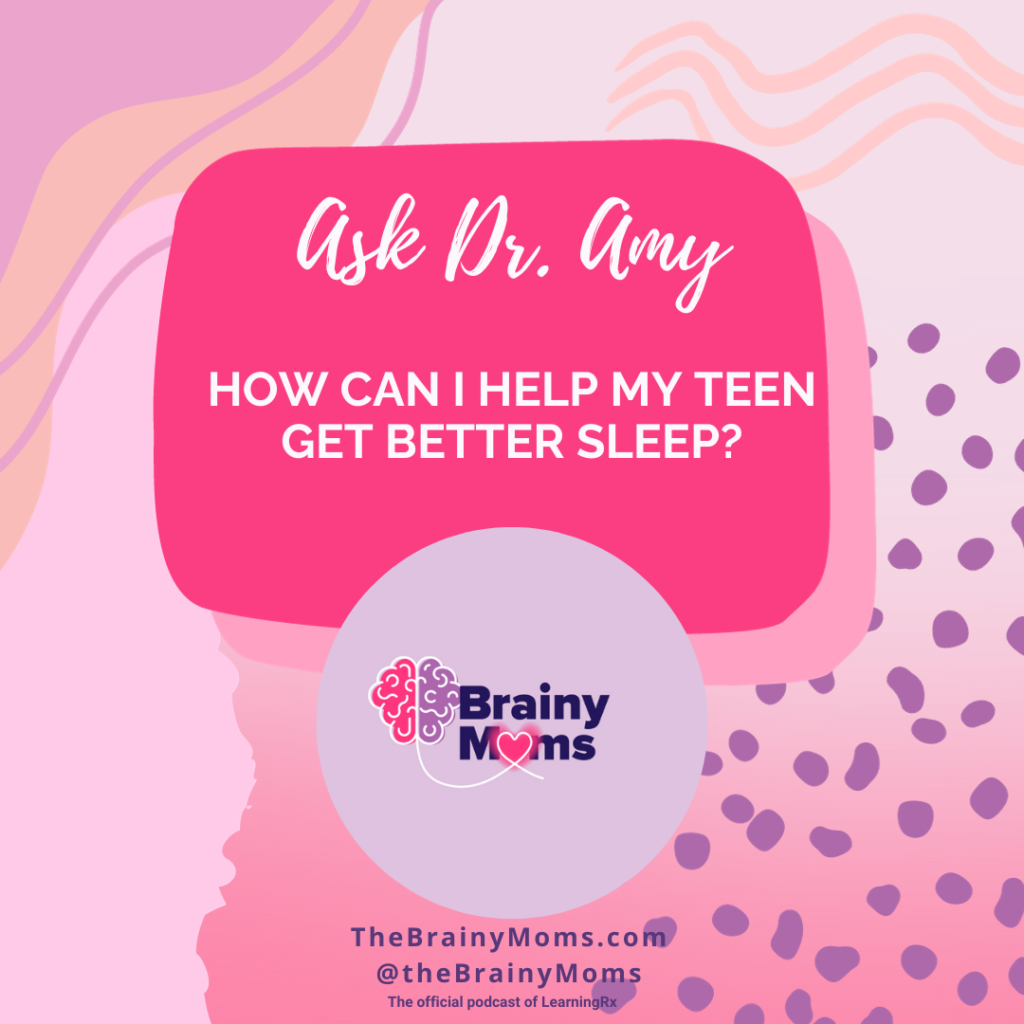If you’re worried your teen isn’t getting enough sleep, you’re probably right. Although the American Academy of Sleep Medicine recommends that 13- to 18-year-olds get 8 to 10 hours of sleep per 24 hours, modern teens are falling short. In fact, a report from the Centers for Disease Control and Prevention (CDC) found that 7 out of 10 (72.7%) of high school students didn’t get enough sleep on school nights. This is a huge factor in getting teens to be happy and healthy, and helping your teens prioritize sleep can feel like a massive challenge.
While there are some helpful recommendations to help support good sleep habits, the real changes need to be self-directed by the teen in order to work and create lasting change. So what strategies can parents use to help their teen better understand why the quality and quantity of sleep is important? Start by determining what motivates them (e.g., academics, sports or musical performance; physical growth; mental health), supplying them with facts, and having an open discussion.
1. Listen to your teen’s reasons for not getting enough sleep.
Perhaps your son is staying up late to play video games with friends in another time zone. Or maybe your daughter is texting with friends late into the night so she doesn’t feel left out. This isn’t a conversation to debate the validity of why they’re staying up late, but rather just a time to try to better understand the “why” behind it. Use the conversation to help your teen feel heard, respected, and valued before you begin a discussion about sleep strategies.
2. Talk about circadian rhythms.
There are two main factors that impact how alert or sleepy your teen is at any given moment. The first is the sleep-wake balance, which references how long it has been since the last time they slept. The second factor is their internal body clock.
Your teen’s internal body clock controls the circadian rhythms in their body. Before puberty, most kid get sleepy around 8 p.m. or 9 p.m. But after puberty, there’s a “sleep phase delay” that shifts teens’ circadian rhythms. Some teens may have trouble falling asleep before midnight. It’s a bit of a cruelty that most teens need to get up around 6 a.m. (or earlier!) for school, but simply understanding their body clock may go far in helping them incorporate tools to fall asleep earlier.
3. Explain the benefits of sleep on the teen brain and body.
The teen years are a time of rapid physical, intellectual, and emotional growth. Anyone who has experienced the after-effects of too little sleep the following day can probably attest to challenges with attention, thinking, processing speed (think reaction times while driving). Memory, too, can be impacted by lack of sleep, because that’s when the brain prunes itself of unwanted toxins and solidifies memories.
Because sleep plays a vital role in almost every function of the body, not getting enough of it can impact everything from hormones and the immune system to muscle and tissue recovery. Long term, inadequate sleep quantity and quality can result in more risk-taking behavior, anxiety, and depression.
In addition, the Sleep Foundation reports that some research indicates that adolescents who regularly don’t get enough sleep may have elevated blood pressure and cholesterol levels, which may put that at higher risk of diabetes and cardiovascular issues.
4. Offer tips for getting better sleep.
Expert recommendations include tips like limiting technology use and exposure to light before bed, avoiding caffeine after lunchtime, being physically active during the day, and sticking to a regimented sleep schedule, especially on school nights.
You may also want to suggest ways that help them deal with stress or anxiety, such as meditation, breathing exercises, journaling, or making a to-do list for the next day to help them decrease their “mental load” enough to unwind and rest.
5. Ask them how you can support them in their quest for more sleep.
Rather than kicking into overdrive to control the situation, try giving your teen some agency to make adjustments to their sleep schedule independently. Have an open discussion about ways you can support them without taking over.
For example, “Would you like me to pick up some Sleepytime tea?” or “If you think black-out curtains might help, I can order a pair online to arrive before Sunday night.” Think about information and support before jumping in to set a bunch of new rules.
Put these strategies to use to help your teen get more—and better—sleep. While setting hard rules for bedtime might feel like the best option, it’s not likely to change much. Use the opportunity to help your teen better understand why sleep is important for their physical, intellectual, and emotional health and look for ways to support them as they make adjustments of their own. You might be surprised at the choices they make!

